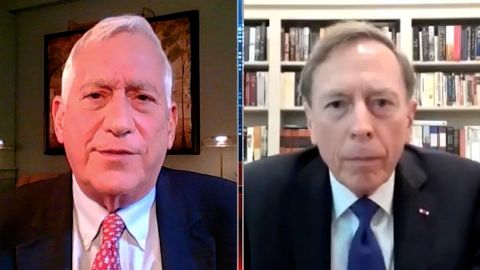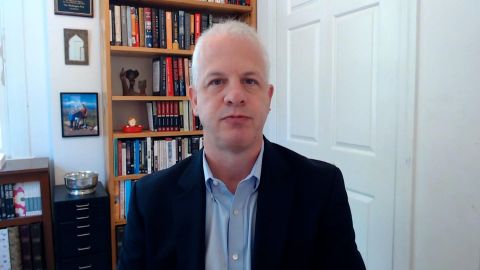Read Transcript EXPAND
BIANNA GOLODRYGA: So let’s be clear. This is not the first state to limit abortion access. But what this ruling and what this law does is something unique to Texas alone, in that it is very confusing. It’s very hard to challenge in court. And am I right when I say that is its intent, right?
SHEFALI LUTHRA, THE 19TH NEWS: That’s what a lot of legal experts are saying, right, that this law could essentially have a chilling effect, right, because you don’t really know what this aid and abet clause that you alluded to really means, right? What does it mean to help someone get an abortion after six weeks? Does it mean answering the phone at a call center? Does it mean giving the money? And if you are subject to a lawsuit, then what happens to you next? And the idea behind that right is to really cut off the support network for folks who might otherwise have sought an abortion later on in pregnancy, which, as you mentioned earlier, is the vast majority of folks seeking abortions.
GOLODRYGA: Because, as it is written, you — it cannot be enforced by state officials, right? It can be forced by any citizen living in the state really deputized to sue someone who is trying to get access to an abortion for at least $10,000.
LUTHRA: Yes.
GOLODRYGA: How is that going to work in a court?
LUTHRA: That’s a really important question, right? And the law, what it does, as you just said, is it creates this army of private citizens, right? Texas Right to Life, one of the major anti- abortion groups in Texas, has already set up a hot line for folks to send in tips, saying, I suspect someone has broken the law. And then Texas Right to Life can go ahead and try and file suit against these people. If you win your lawsuit, you get $10,000. You get your attorney fees reimbursed by the state. And what this does is, it does two things, right? It creates this potential entire network of private people who can then enforce the law. It also seeks to sort of circumvent some of the restrictions put in place on what states can and can’t do to limit abortion access. And that very private citizen component of the law appear to be what has sort of stopped the Supreme Court from blocking enforcement so far.
GOLODRYGA: And it’s that fear factor, right, because Texas legislators who voted for this law, who drafted it say, listen, you can go to court and if you are found innocent, then that’s it. Then the defendant can go on scot- free. But, no, they have to pay their legal fees, right? And I actually read that any abortion provider, a doctor, has to permanently have this attached to their record.
LUTHRA: Some might even have to close their doors altogether, right? And as a result, we are already seeing the impact. Virtually every abortion provider — in fact, every abortion provider in the state of Texas has said they’re absolutely going to comply with this law, right? They are terrified of what could happen to them if they are subject to a lawsuit, many of the abortion funds too, right, which they raise money for people seeking abortions who can’t afford to pay for them on their own. They are so scared of what it would mean to be subject to one of these lawsuits and have this $10,000 fine, right?
About This Episode EXPAND
Shefali Luthra; Craig Whitlock; Gen. David Petraeus; Ady Barkan
LEARN MORE



